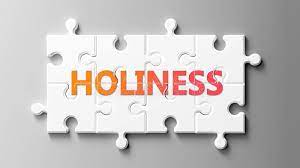Holiness for the People
17:1 to 20:27

Like Chapters 1-16, Leviticus 17 addresses issues related to the proper place of sacrifice (17:4 with 1:3; 3:2; 4:4), the proper use of blood (17:10, 12 and 14 with 3:17 and 7:26), the importance of addressing ritual impurity (17:15-16 with 11:24-25 and 39-40; 15:31; 16:16 and 19), and the application of those mitzvah to resident aliens (17:8, 10, 13 and 15 with 16:29). But like Chapters 18-20, Leviticus 17 also has a prohibition against illicit practices (17:7 with 18:21; 19:4; 20:2). The chapter therefore serves as a smooth transition between Leviticus 1-16 and Leviticus 18-20.293
Up to this point in Leviticus, most of the mitzvot have focused on matters directly related to the Tabernacle: the sacrifices to be presented there (Leviticus 1-7), the procedures necessary for public worship to begin there (Leviticus 8-10), the procedures for addressing impurity so that it does not pollute the Tabernacle (Leviticus 11-15), the yearly ritual, the Day of Atonement, that cleansed it and the people (Leviticus 16).
Chapters 18-20 now turn to matters related more broadly to living as a kingdom of priests in the Promised Land. Leviticus 18 and 20 focus on the unholy practices of the Canaanites that must be avoided, while Leviticus 19 addresses the unholy practices to be avoided as well as holy practices to obey. If the Israelites were to obey ADONAI in these things, they would prove themselves to be His holy people (20:26) and enjoy life under His favor and blessing.294



Leave A Comment